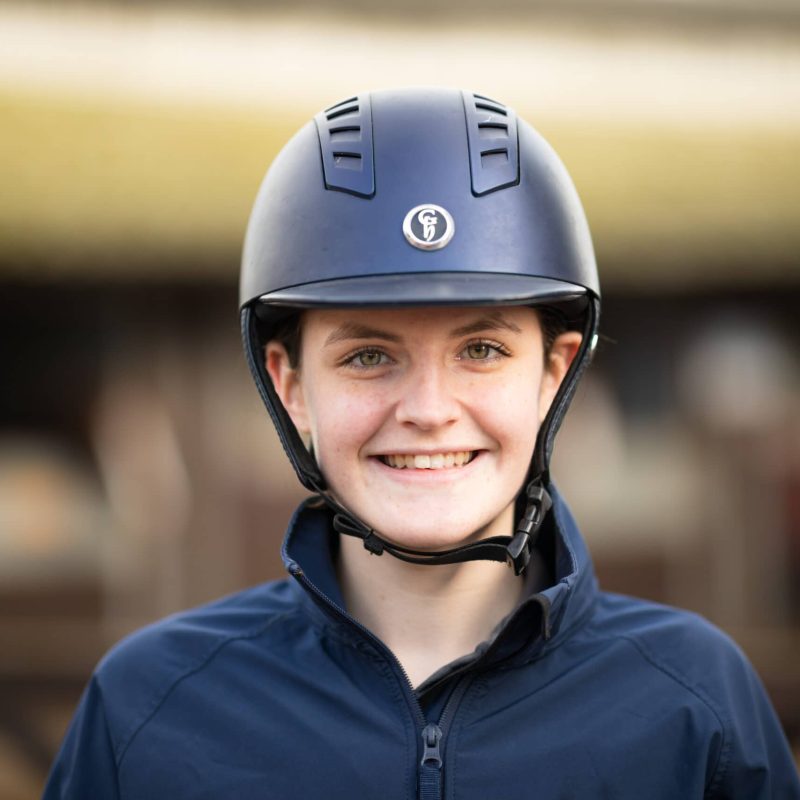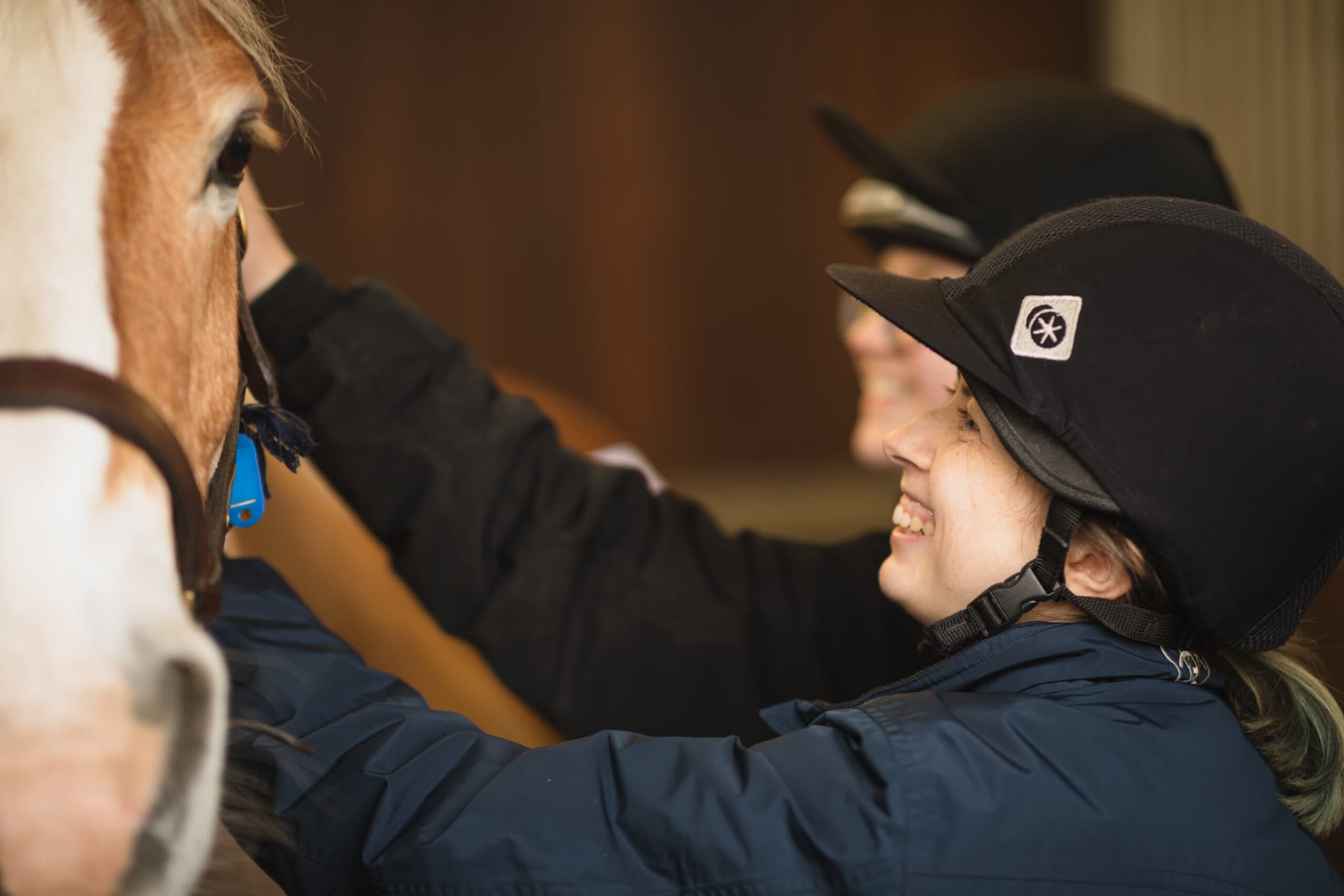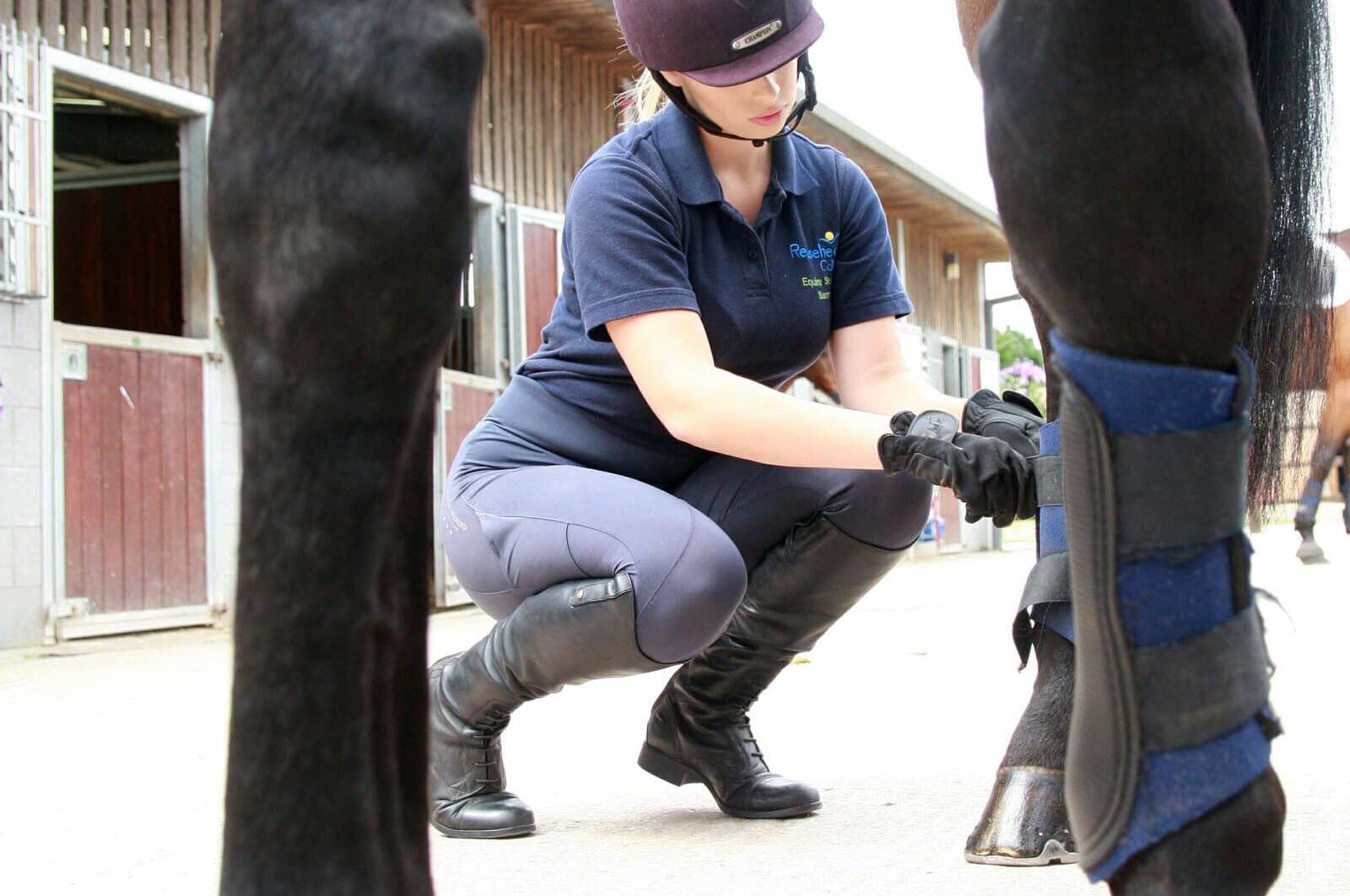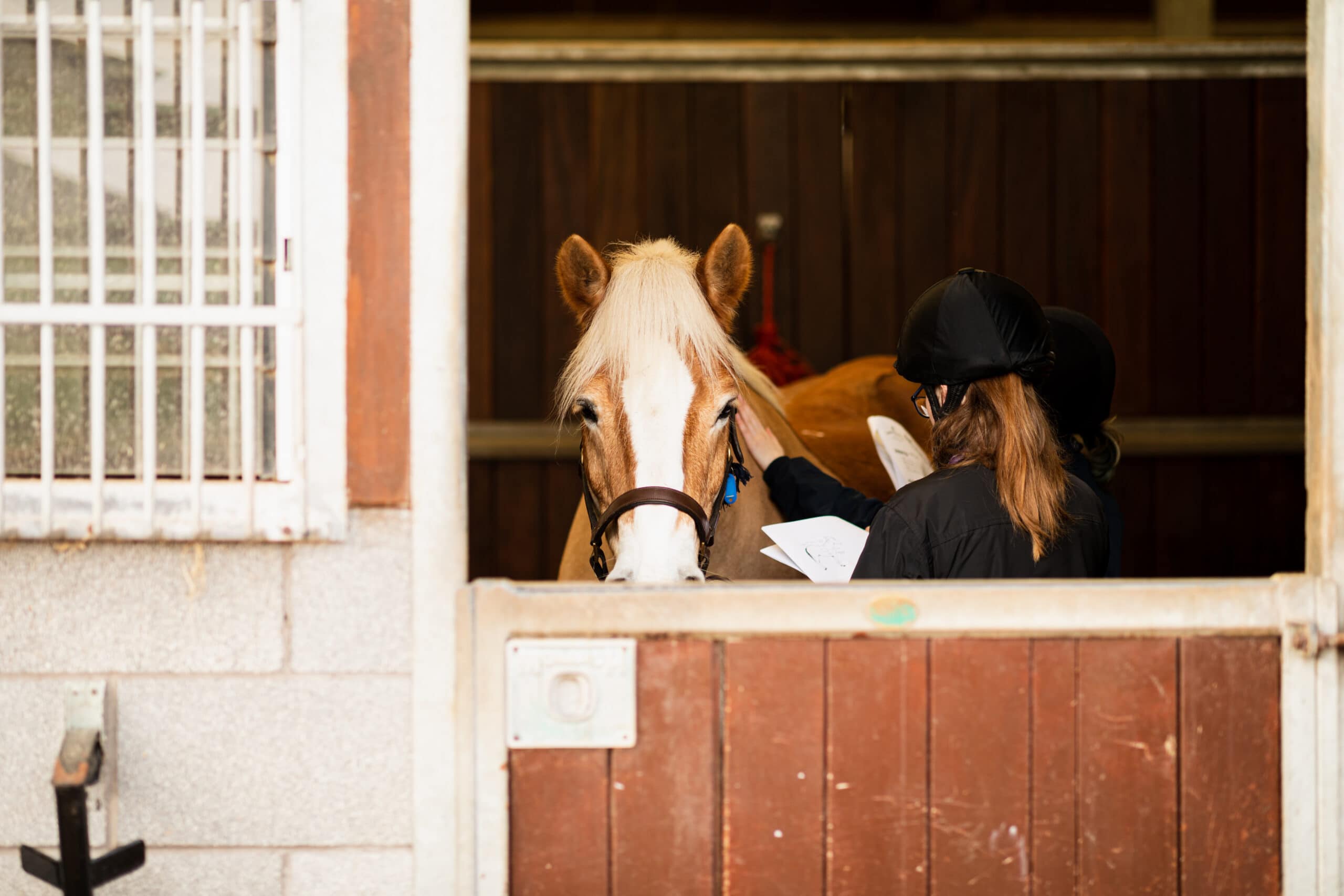Is working at the forefront of equine training, rehabilitation and welfare the next step on your equine journey?
If so, then this programme is for you. This course will provide you with unique skills to combine an understanding of equine behaviour, training and rehabilitation reflective of current needs within the equine industry.


With guidance from our expert staff, you will develop an understanding of equine behaviour, and learning theory and how this is used to more effectively apply training techniques. Emphasis is placed upon establishing the links between key areas of equine rehabilitation including behaviour modification, biomechanics, injury and exercise physiology.


In the first year of study for the FdSc Equine Training and Rehabilitation you will study core modules which are compulsory to take. In the second year you will study a combination of compulsory and optional modules.
Overall workload
Your overall workload consists of class contact hours, independent learning and assessment activity, plus field trips. Your actual contact hours may depend on which optional modules you select, but the following information gives an indication of how much time you will need to allocate to different activities at each year of the course:
Year 1:
32% of your time is spent in timetabled teaching and learning activity
Teaching, Learning and Assessment: 380 hours
Placement: 130 hours
Independent Study: 690 hours
Year 2:
24% of your time is spent in timetabled teaching and learning activity
Teaching, Learning and Assessment: 288 hours
Placement: 50 hours
Independent Study: 862 hours
Assessment Methods
Assessments are designed to encourage both academic skills and skills valued in the workplace. They include a combination of coursework and examinations. Coursework may take many forms including: essays, reports, data processing, presentations, academic posters, seminar discussions, interviews, critical reviews, portfolios of evidence and practical competency assessments. The examinations vary, depending on the nature of the module, but may take the form of multiple-choice papers, essays, practical assessments, data handling questions, short answer quizzes, and in class examinations. Assessment weighting varies depending on course and year of study. For more information please see our Course Information on our website.
Feedback
Opportunities for feedback on your progress will be available throughout your course. This will be provided in many formats, including written and verbal. Feedback on graded work is supplied via Turnitin or directly from the module tutor. The majority of assessment submissions are made via Turnitin and feedback for coursework is provided within 20 working days after the submission date. If for unforeseen reasons this is not possible, the reasons will be communicated to the students within 2 weeks and the feedback prioritised within the department.
Written feedback will be supported verbally should the student require clarification. Formative assessment feedback will be provided at the time of completion where possible, with more detailed summative feedback for reports.
During induction week, the students are given an Induction Timetable, which is located within a course specific handbook.
During the second-year students are required to undertake work placements as a mandatory part of the course.
The responsibility of finding a suitable placement lies with the student who is also responsible for any related financial requirements. However, support will be provided as part of the placement module.
Tuition Fees
As a student at UCR, you will have two main costs to meet; your tuition fees and living costs.
Our full-time tuition fees for UK and EU students, entering University, can be found on our student finance page. These fees are charged for each academic year of a course and are set by the college annually.
Tuition fees for international students can also be found on our student finance page.
Additional Costs
For practical sessions at the equestrian centre, learners are expected to purchase their own uniform (yard wear – as specified by the Equestrian Centre in joining instructions).
As identified previously, students are required to undertake a work placement in a location of their own choosing. The responsibility of finding a suitable placement lies with the student who is also responsible for any related financial requirements.
Students also have the option to undertake a secondary qualification. The training fees for the first qualification are paid for by the college and payment of the examination fee is the responsibility of the student. If students wish to undertake more than one secondary qualification, they may do so but will need to pay the training fees in addition to the examination fee.
Equipment Costs
Student can expect costs to be in the region of £300, to include PPE of an approved riding hat, riding boots, gloves, and a good waterproof coat (without a hood) as well as navy blue jodhpurs and navy-blue polo shirt.
Prices of equipment are subject to change dependent on retailer.
Apply directly through UCAS
A minimum of 64 UCAS points
September 2022
September 2023
Full-time: 2 years
Here you will find useful information about the services and support available at University Centre Reaseheath. Click to expand each item:
University Centre Reaseheath is committed to providing additional financial support to those who need it. To find out about the bursary schemes available visit the additional financial support pages.
For students to get the best out of their time at University Centre Reaseheath, we must both recognise that we owe obligations to each other. These obligations are set out in our UCR Student Contract. Before you accept an offer of a place at University Centre Reaseheath, it is important that you read these contract conditions. If you are going to be living in Halls of Residence, you will also need to read the Student Accommodation Licence Conditions. Both of these contracts can be found here.
Click here to view the University Centre Reaseheath Student Protection Plan.
All UCR students are given the opportunity to apply for residential accommodation. First year students are guaranteed accommodation and this offer is made to all applicants who live more than a reasonable daily travelling distance from Reaseheath (providing you have applied before the UCAS equal considerations deadline. For full details on our halls of residence visit our accommodation page.
We have a team of dedicated professionals on hand to offer you support. These include our Student Services Team, Inclusive Learning Team, Library and Learning Resources Team and the Reaseheath Careers Service. You can find more information on the support provided at Reaseheath on our support page.
University Centre Reaseheath is proud to welcome international students. For more information, please visit our international students page.